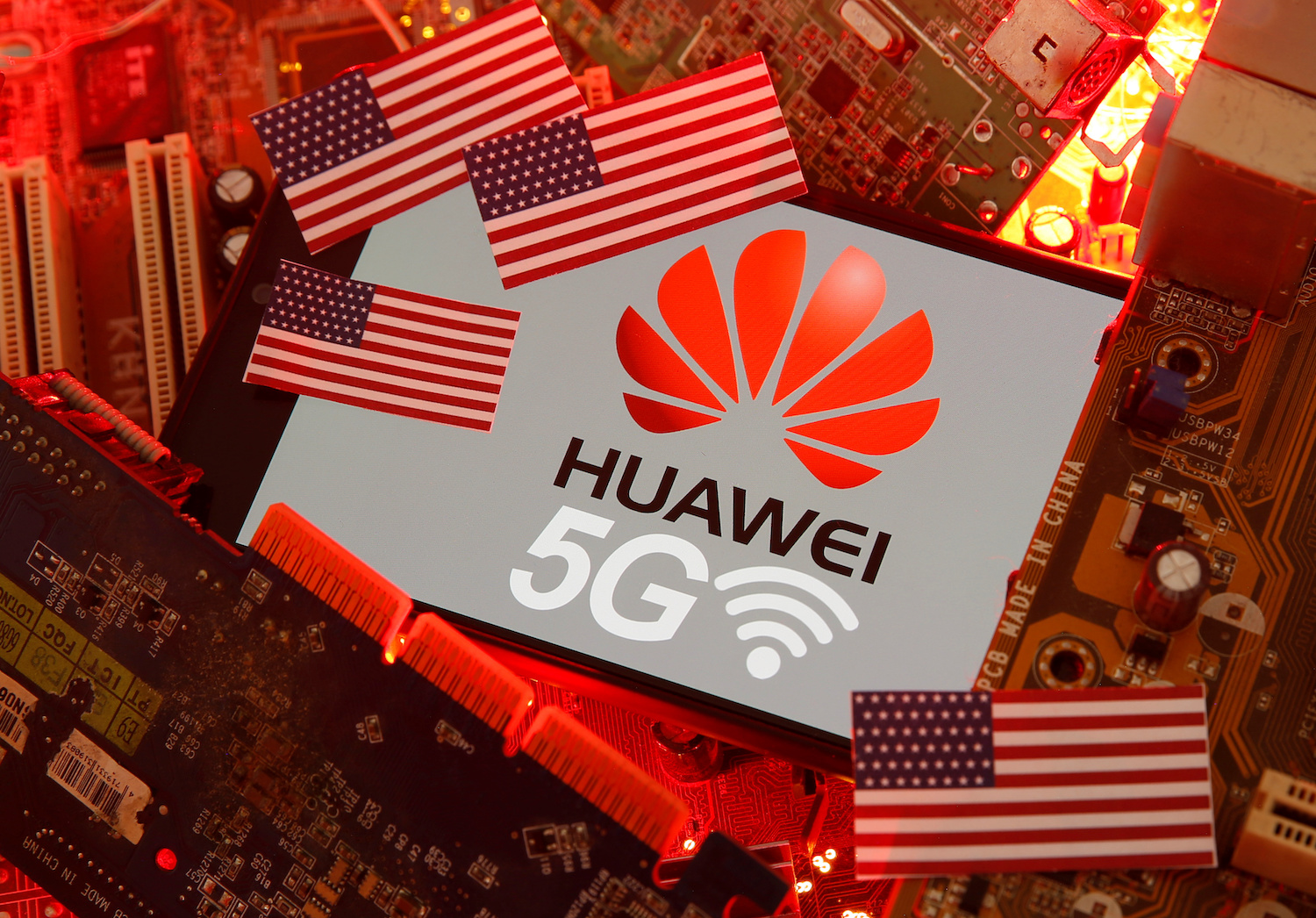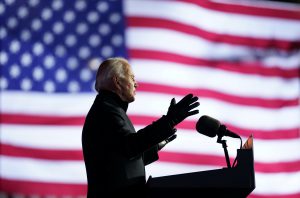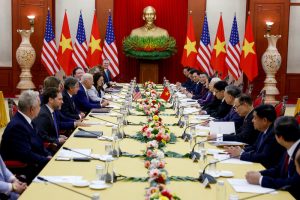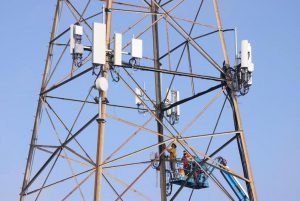(ATF) The Trump administration is keeping up a torrent of anti-China rules in the final days before Biden takes over as president on Wednesday, including another swipe at Huawei and new guidance to US government departments to reduce procurement of Chinese goods and services.
President Biden is expected to launch a wave of executive orders of his own after he takes office on January 20, in a bid to advance his political agenda without waiting for new laws to pass a Congress that will be distracted by a second impeachment of Trump, and where the Democrats will have only a narrow majority in the Senate.
But Biden’s executive orders are likely to focus on tackling the Covid pandemic, the economic crisis, climate change and racial inequality, accord to a memo issued by his incoming White House chief of staff Ron Klain.
There would be no political benefit for Biden from moving quickly to reverse anti-China steps taken by the Trump administration – in fact quite the opposite – so the late flurry of actions to hurt Chinese business interests will continue to resonate in the near term, even if Biden officials take little interest in implementation.
This has encouraged Trump officials to keep taking steps to harm Chinese companies, even as the last days of the administration wind down.
Last Friday, outgoing National Security Adviser Robert O’Brien announced a directive to government agencies to minimize the procurement of Chinese goods and services, for example.
“The People’s Republic of China (PRC) poses the single greatest national security threat to America today… The PRC targets the information systems of the United States Government for personnel records, military plans, and other exploitable data through cyber and other means. For this reason, the United States must take corresponding actions to protect American interests. We must adjust our regulations and policies and take other necessary actions to reduce the risk of PRC technical and human espionage activities directed at the Federal Government,” O’Brien said in a statement.
O’Brien also announced a plan to enhance the security of 5G telecom networks on January 15 and on the weekend the latest move to hurt the operational ability of Huawei emerged, when Reuters reported that the US government had revoked licences to sell to Huawei for firms including Intel, and intends to reject other applications to supply the Chinese telecom firm.
The US Semiconductor Industry Association said in an email that the Commerce Department had issued “intents to deny a significant number of license requests for exports to Huawei and a revocation of at least one previously issued license,” Reuters reported.
‘Broad range of products’
The semiconductor association’s email said the actions spanned a “broad range” of products in the semiconductor industry and asked companies whether they had received notices.
The email noted that companies had been waiting “many months” for licensing decisions, and with less than a week left in the administration, dealing with the denials was a challenge.
A spokesman for the semiconductor group did not immediately respond to a request for comment.
Companies that received the “intent to deny” notices have 20 days to respond, and the Commerce Department has 45 days to advise the companies of any change in a decision or it then becomes final. Companies would then have another 45 days to appeal.
The US put Huawei on a Commerce Department “entity list” in May 2019, restricting suppliers from selling US goods and technology to the company.
But some sales were allowed and others were denied while the US ratcheted up the restrictions against the company, including expanding US authority to require licenses for sales of semiconductors made abroad with American technology.
Before the latest action, some 150 licenses were pending for $120 billion worth of goods and technology, which had been held up because various US agencies could not agree on whether they should be granted, a source said.
Another $280 billion of licenses for goods and technology for Huawei still have not been dealt with, the source said, but now face a higher likelihood of denial.
An August rule said that products with 5G capabilities were likely to be denied, but sales of less sophisticated technology would be decided on a case-by-case basis.
The US made the latest decisions during meetings starting on January 4 with senior officials from the departments of Commerce, State, Defense and Energy, the source said. The officials developed detailed guidance with regard to which technologies were capable of 5G, and then applied that standard, the person said.
By doing that, the officials denied the vast majority of the roughly 150 disputed applications, and revoked the eight licenses to make those consistent with the new denials.
The action came after pressure from a recent Trump appointee in the Commerce Department, Corey Stewart, who wanted to push through hardline China policies after being hired for a two-month stint in the agency at the end of the administration.
























